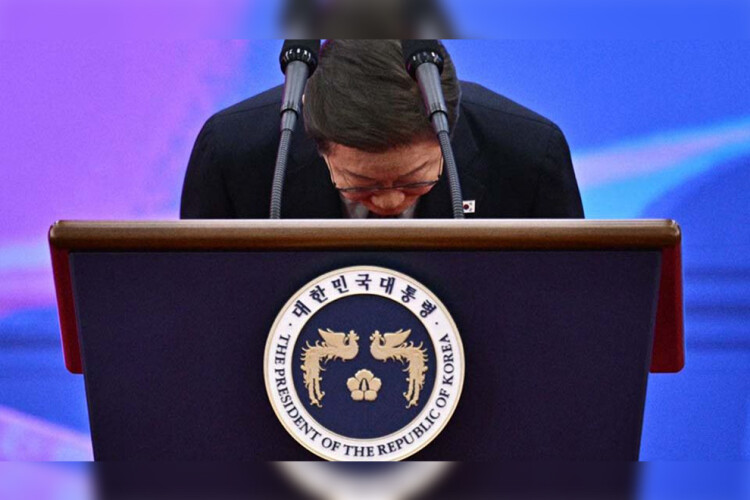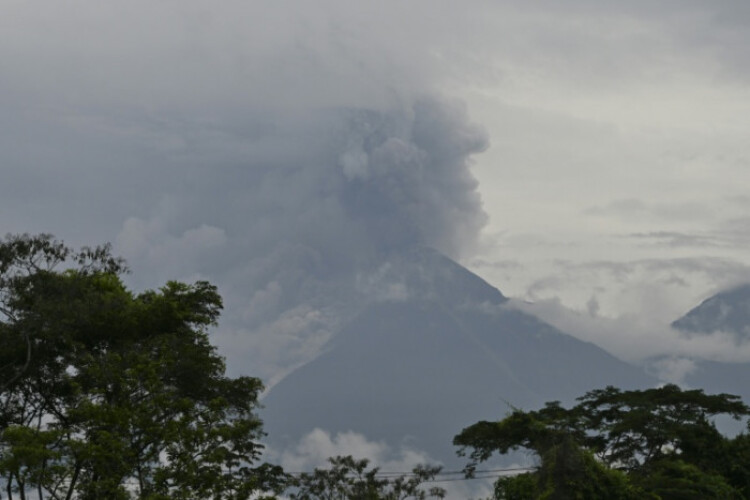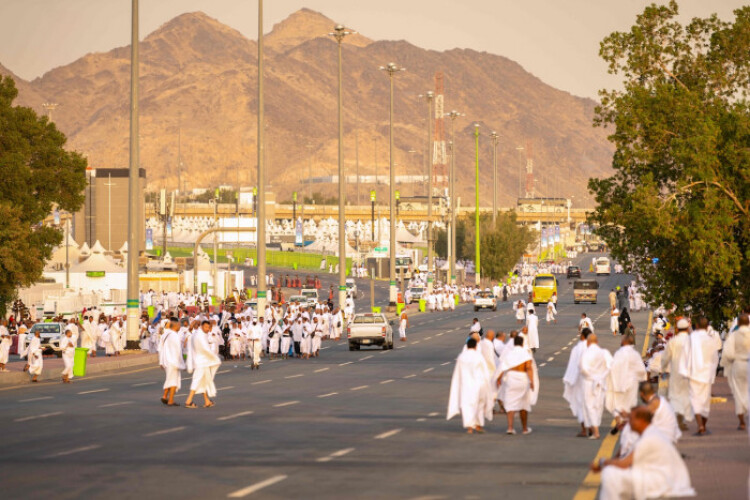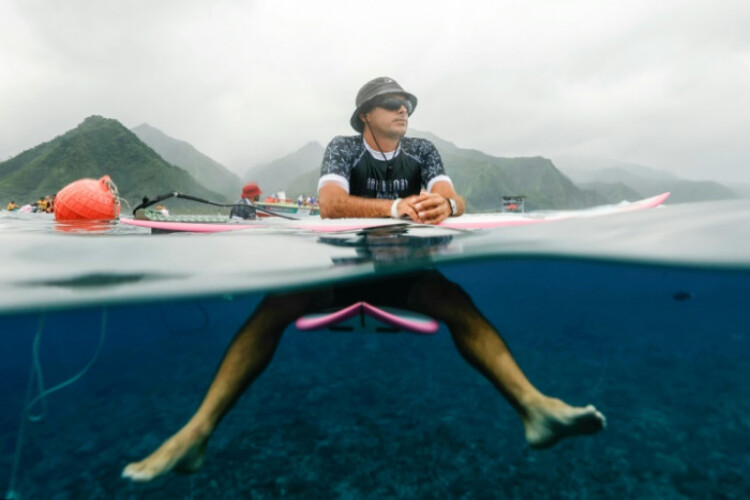
SEOUL – On Tuesday, the people of South Korea elected Lee Jae-myung, the former chairman of the Democratic Party of Korea, as their new president. His election marks not only a dramatic political moment for the country but also signals the rise of a global political figure whose personal journey, political convictions and foreign policy stance are likely to attract worldwide attention.
At first glance, Lee Jae-myung appears to be the ultimate political success story. His resume includes key leadership positions: mayor of Seongnam, governor of Gyeonggi Province (home to over 10 million people), presidential candidate in 2022 (when he lost narrowly to Yoon Suk Yeol) and leader of Korea’s most prominent political party. Now, he stands at the highest office in the land. Yet, his political rise is made all the more remarkable when seen against the backdrop of his personal history.
Lee was born into severe poverty in a small, struggling village in a remote area of the country. While most children his age attended middle and high school, Lee was forced to work as a child laborer in a factory to support his family. This grueling labor caused a devastating injury, leaving his left arm permanently disabled. Despite such hardship, Lee was determined to change his life. He earned his General Equivalency Diploma, allowing him to pursue higher education, and eventually attended university on a scholarship. After passing the Korean bar exam, he chose not to seek corporate wealth but to become a human rights lawyer, representing the marginalized and standing up against corruption.
His deep dissatisfaction with corrupt local governance drove him into politics. In 2010, Lee ran for mayor of Seongnam, a bustling city known for its civic engagement, and won — a victory many saw as a quixotic effort come true. From there, his political career soared, taking him to the governor’s seat of Korea’s most populous province and then to national prominence. Lee’s journey — from a child laborer with a disabled arm to president — is unprecedented in Korean political history and rare anywhere in the world.
What kind of president will Lee Jae-myung be? His life story suggests a leader committed to creating a society in which the poorest and most marginalized have access to opportunity, dignity and human rights. However, Lee’s emphasis has never been on punishing the wealthy or engaging in class warfare. Instead, he consistently stresses the need to lift everyone, creating a society where both rich and poor can prosper. His slogan is not about redistribution but about broad-based advancement.
Where Lee remains relatively untested is in foreign policy. As a local and regional official, he had little exposure to international affairs. Yet, during his presidential campaign, Lee laid out a clear diplomatic framework, drawing on advice from his foreign policy team. His approach is grounded in pragmatism. For Lee, diplomacy is not about lofty ideals or ideological alignment; it is about maximizing national benefit across political, economic and cultural dimensions, both in the short and long terms.
This pragmatism means that Lee is unlikely to break away from South Korea’s longstanding alliances. Conservative critics often paint him as anti-American or dangerously sympathetic to North Korea, but these attacks miss the mark. Lee understands that the US remains the world’s top military and economic power and the leader in cutting-edge technology — sectors vital to Korea’s security and financial future. From a practical standpoint, no president seeking to maximize the national interest would neglect or abandon strong ties with Washington.
At the same time, Lee emphasizes the importance of constructive relations with China. As South Korea’s giant neighbor, China is the world’s second-largest economy, a major player in high-tech industries and a key stakeholder in managing North Korean issues. For Lee, pragmatic diplomacy means finding ways to work productively with both Washington and Beijing, avoiding unnecessary polarization and pursuing strategies that expand Korea’s room to maneuver on the global stage.
Particularly notable is how Lee’s background shapes his diplomatic philosophy. His life has taught him the value of focusing on individual well-being and tangible results, not empty rhetoric. In his eyes, the national interest is not an abstract concept but about creating conditions that improve people’s lives. Therefore, we can expect Lee’s foreign policy to blend hard-nosed realism and human-centered pragmatism. His administration is likely to explore diplomatic initiatives that not only secure Korea’s long-term interests but also resonate with global efforts to support vulnerable populations.
In sum, the election of Lee Jae-myung represents more than just a domestic political shift. It signals the emergence of a leader whose unique life story, political ideals and diplomatic outlook may position South Korea to play a more prominent and constructive role on the world stage. Both Koreans and the international community will be watching closely to see how Lee translates his remarkable personal journey into presidential leadership — and whether he can deliver on his promise to build a society in which all can thrive.
Wang Son-taek is an adjunct professor at Sogang University. He is a former diplomatic correspondent at YTN and a former research associate at Yeosijae. The views expressed here are the writer’s own. — Ed.
Asia News Network/The Korea Herald
At first glance, Lee Jae-myung appears to be the ultimate political success story. His resume includes key leadership positions: mayor of Seongnam, governor of Gyeonggi Province (home to over 10 million people), presidential candidate in 2022 (when he lost narrowly to Yoon Suk Yeol) and leader of Korea’s most prominent political party. Now, he stands at the highest office in the land. Yet, his political rise is made all the more remarkable when seen against the backdrop of his personal history.
Lee was born into severe poverty in a small, struggling village in a remote area of the country. While most children his age attended middle and high school, Lee was forced to work as a child laborer in a factory to support his family. This grueling labor caused a devastating injury, leaving his left arm permanently disabled. Despite such hardship, Lee was determined to change his life. He earned his General Equivalency Diploma, allowing him to pursue higher education, and eventually attended university on a scholarship. After passing the Korean bar exam, he chose not to seek corporate wealth but to become a human rights lawyer, representing the marginalized and standing up against corruption.
His deep dissatisfaction with corrupt local governance drove him into politics. In 2010, Lee ran for mayor of Seongnam, a bustling city known for its civic engagement, and won — a victory many saw as a quixotic effort come true. From there, his political career soared, taking him to the governor’s seat of Korea’s most populous province and then to national prominence. Lee’s journey — from a child laborer with a disabled arm to president — is unprecedented in Korean political history and rare anywhere in the world.
What kind of president will Lee Jae-myung be? His life story suggests a leader committed to creating a society in which the poorest and most marginalized have access to opportunity, dignity and human rights. However, Lee’s emphasis has never been on punishing the wealthy or engaging in class warfare. Instead, he consistently stresses the need to lift everyone, creating a society where both rich and poor can prosper. His slogan is not about redistribution but about broad-based advancement.
Where Lee remains relatively untested is in foreign policy. As a local and regional official, he had little exposure to international affairs. Yet, during his presidential campaign, Lee laid out a clear diplomatic framework, drawing on advice from his foreign policy team. His approach is grounded in pragmatism. For Lee, diplomacy is not about lofty ideals or ideological alignment; it is about maximizing national benefit across political, economic and cultural dimensions, both in the short and long terms.
This pragmatism means that Lee is unlikely to break away from South Korea’s longstanding alliances. Conservative critics often paint him as anti-American or dangerously sympathetic to North Korea, but these attacks miss the mark. Lee understands that the US remains the world’s top military and economic power and the leader in cutting-edge technology — sectors vital to Korea’s security and financial future. From a practical standpoint, no president seeking to maximize the national interest would neglect or abandon strong ties with Washington.
At the same time, Lee emphasizes the importance of constructive relations with China. As South Korea’s giant neighbor, China is the world’s second-largest economy, a major player in high-tech industries and a key stakeholder in managing North Korean issues. For Lee, pragmatic diplomacy means finding ways to work productively with both Washington and Beijing, avoiding unnecessary polarization and pursuing strategies that expand Korea’s room to maneuver on the global stage.
Particularly notable is how Lee’s background shapes his diplomatic philosophy. His life has taught him the value of focusing on individual well-being and tangible results, not empty rhetoric. In his eyes, the national interest is not an abstract concept but about creating conditions that improve people’s lives. Therefore, we can expect Lee’s foreign policy to blend hard-nosed realism and human-centered pragmatism. His administration is likely to explore diplomatic initiatives that not only secure Korea’s long-term interests but also resonate with global efforts to support vulnerable populations.
In sum, the election of Lee Jae-myung represents more than just a domestic political shift. It signals the emergence of a leader whose unique life story, political ideals and diplomatic outlook may position South Korea to play a more prominent and constructive role on the world stage. Both Koreans and the international community will be watching closely to see how Lee translates his remarkable personal journey into presidential leadership — and whether he can deliver on his promise to build a society in which all can thrive.
Wang Son-taek is an adjunct professor at Sogang University. He is a former diplomatic correspondent at YTN and a former research associate at Yeosijae. The views expressed here are the writer’s own. — Ed.
Asia News Network/The Korea Herald










